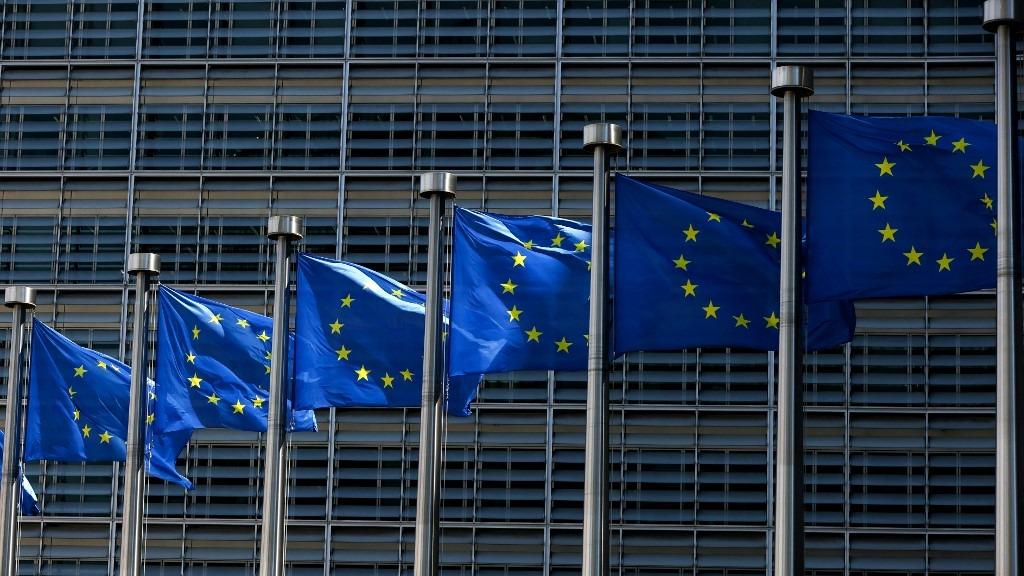 In this June 16, 2022 file photo, European Union flags fly outside the European Commission building in Brussel. Analysts said, investors have started pouring money into Europe's stocks, currency and bonds. (PHOTO / AFP)
In this June 16, 2022 file photo, European Union flags fly outside the European Commission building in Brussel. Analysts said, investors have started pouring money into Europe's stocks, currency and bonds. (PHOTO / AFP)
BRUSSELS - The European Union should consider jointly borrowing to finance investment in economic security and defense, Spain's Finance Minister Carlos Cuerpo said on Tuesday, joining France, Belgium and Estonia in calls for more EU funding for common projects.
The idea of joint borrowing for EU defense would build on the 800 billion euro ($873.92 billion) of joint EU debt agreed to counter the effects of the COVID-19 pandemic.
Germany opposes new joint borrowing, but pressure is growing for Berlin to change course. Cuerpo said new EU borrowing was now part of the discussions as part a broader funding mix for various EU investments as the bloc faces the challenge of weaning itself of fossil fuels and securing critical raw materials for "green" and digital technologies.
"Within this context of economic security, joint EU borrowing or joint EU financing has a role to play going forward, undoubtedly," Cuerpo told Reuters in an interview.
"We're talking about value chains, critical role materials, we're talking about energy independence, and one element of this economic security dimension is, of course, the defense industry and reducing our reliance on non-EU defense imports," he said.
EU finance ministers are discussing how to accelerate the harmonisation of the bloc's 27 national capital markets that would make it easier for EU citizens and outside investors to put funds in European securities
ALSO READ: EU trade limits put shackles on itself
Energy prices in Europe surged in 2022 and 2023 as the 27-nation bloc scrambled to find alternatives to Russian natural gas.
"Everyone became much more alert that the main objective was not just a digital transformation or a climate transition, but also a discussion on energy and on defense," Cuerpo said.
"I think this is now a common vector, although maybe we might have a different interpretation on what the balance of the main financing elements are, but it's part of the discussion," he said.
The crucial other part of the needed funding, estimated by the European Commission at hundreds of billions of euros a year, will be private capital that the EU must draw in by making its capital markets more attractive, Cuerpo said.
EU finance ministers are discussing how to accelerate the harmonisation of the bloc's 27 national capital markets that would make it easier for EU citizens and outside investors to put funds in European securities.
ALSO READ: EU regulators seek details of Apple, Epic Games spat
The EU has been working on such a Capital Markets Union for the last 10 years but progress has been slow because of vested national interests and the complexity of harmonising 27 different legal systems and financial traditions.
"There might be an enhanced sense of urgency at the current moment given the geopolitical situation, the macro situation in the euro area particularly, but more broadly in the European Union," Cuerpo said.
"There is an element there of private financing and therefore the discussion on CMU and its importance to close the investment gap, or at least part of the investment gap," he said.
Cuerpo said Spain was willing to heed France's call to move ahead with the harmonisation of capital markets rules among a smaller group of willing EU countries, if a compromise among all 27 governments was too difficult.
Cuerpo said he backed the idea of creating a common EU savings instrument as well as more harmonised corporate insolvency and securitisation laws and supervision.
Such changes could help channel private cash in Europe to fund, for instance, technology companies, which now often chose to relocate to the United States to expand because the capital markets there are much more developed.


